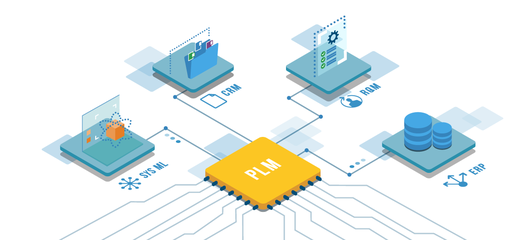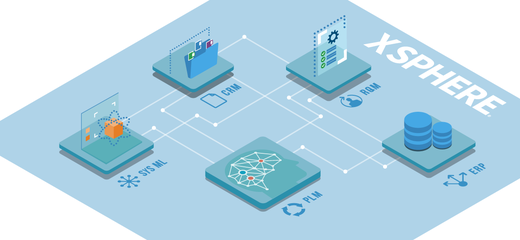Challenges of today's IT landscapes
Nowadays the trend in large and medium-sized companies is mostly towards hybrid and multi-cloud IT landscapes. Departments, applications and users are distributed all over the world, yet, at the same time, digitally networked with one another. IT environments continue to grow due to new technologies, which leads to ever larger data silos.
The challenge now is to make this data available to everyone. Conventional integration concepts are usually no longer sufficient to manage the data in a secure and up-to-date manner. Innovative technologies are required that adapt to the continuous change of our agile age. With this idea in mind we developed XSPHERE.
Provision of information
- Secure linking of data – regardless of whether it is managed in the cloud or "on premises"
- Data remains up-to-date and stable, even if the IT landscape changes
- Linking instead of integration reduces the effort spent on implementation and maintenance
- Data no longer needs to be copied and synchronised
Faster and easier decision making
- Benefit from shorter innovation cycles thanks to a virtual data network
- Have access at all times to information that simplifies and accelerates your decision making
- Decisions can be made on a uniform corpus of data
Cross-departmental collaboration
- Work and collaborate with other departments in your company without leaving your own system environment
- Intelligent, simple and secure data access to information from a wide variety of sources, thanks to flexibly adaptable links
- No more error-prone double data maintenance
Do you encounter the following challenges in your daily work?
- Would your colleagues from different engineering disciplines like to share relevant information with you, but don't know how?
- Would you like to better evaluate the effects of your development work on other departments using different tools?
- Do you find it difficult to obtain the right information that is relevant to your work?













